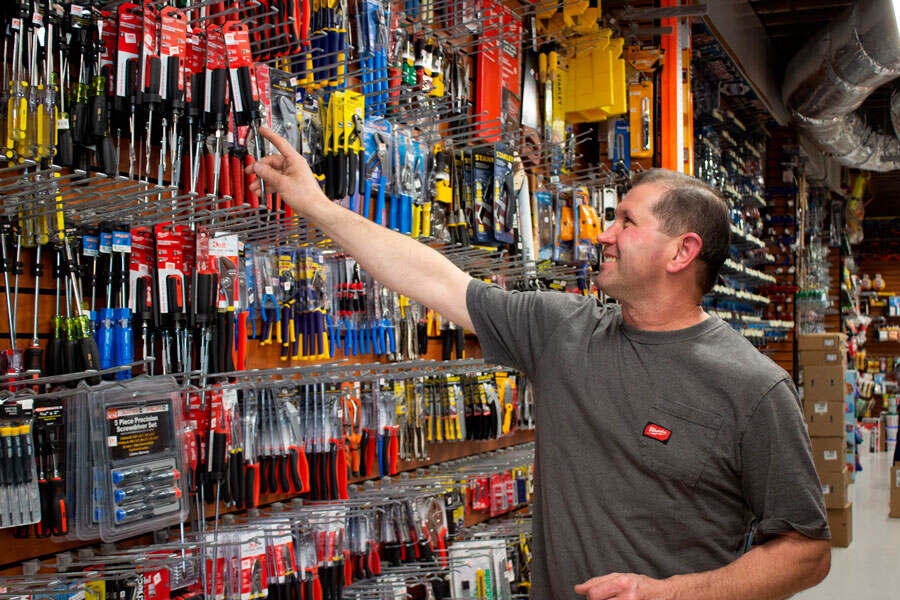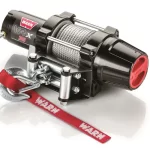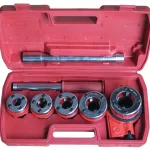What is a Hardware Store?
A hardware store is a retail establishment that specializes in selling a wide range of tools, equipment, and supplies used for home improvement, construction, and various DIY projects. These stores cater to both professional contractors and homeowners, offering a comprehensive selection of products to meet their diverse needs.
Hardware stores typically carry a vast array of items, including hand tools, power tools, plumbing supplies, electrical components, painting materials, gardening equipment, and building materials such as lumber, drywall, and hardware like nails, screws, and hinges. They serve as a one-stop shop for individuals undertaking home renovations, repairs, or maintenance tasks.
The importance of hardware stores lies in their ability to provide convenient access to essential products and knowledgeable staff who can offer advice and guidance on various projects. Whether you’re hanging a picture frame, fixing a leaky faucet, or embarking on a major home renovation, hardware stores have the necessary tools and materials to tackle these tasks.
Furthermore, hardware stores play a crucial role in the construction industry, catering to professionals such as contractors, builders, and tradespeople. They offer specialized tools, heavy-duty equipment, and bulk supplies that meet the demands of larger-scale projects, ensuring that construction and renovation work can progress efficiently.
Benefits of Shopping at a Local Hardware Store
Shopping at a local hardware store offers several advantages over big-box chains. One of the primary benefits is the personalized service and expert advice you’ll receive. Local hardware stores typically employ knowledgeable staff with years of experience in the industry. They can guide you through your projects, recommend the right tools and materials, and offer valuable tips and tricks that can save you time and money.
Additionally, supporting local businesses is crucial for the health and vitality of your community. When you shop at a local hardware store, a more significant portion of your money stays within the local economy, contributing to job creation, tax revenue, and overall economic growth. Local stores also tend to be more invested in the community, often sponsoring local events, teams, and initiatives.
Another advantage of local hardware stores is their unique product selection. While big-box stores may carry a wider range of products, local stores often stock specialized items tailored to the needs and preferences of the local community. You may find unique or hard-to-find tools, materials, and accessories that are not readily available elsewhere.
Moreover, local hardware stores often have a more intimate and welcoming atmosphere. You’re likely to be greeted by name and treated as a valued customer, rather than just another transaction. This personal touch can make the shopping experience more enjoyable and memorable.
Finding Hardware Stores Near You
One of the easiest ways to locate hardware stores in your area is by using online search engines like Google or Bing. Simply enter a search query like “hardware stores near me” or “hardware stores in [your city/zip code],” and you’ll be presented with a list of nearby options along with their addresses, hours of operation, and contact information.
Another convenient method is to utilize map applications or websites like Google Maps or Apple Maps. These platforms allow you to search for “hardware stores” and display the nearest options plotted on an interactive map, making it easy to identify their proximity to your location and plan your route.
Many hardware store chains and independent retailers also have dedicated mobile apps or online directories that can help you find their nearest locations. These apps often provide additional features like inventory checks, special offers, and the ability to create shopping lists.
If you prefer a more personal approach, asking friends, neighbors, or local community members for recommendations can be a great way to discover reputable hardware stores in your area. Word-of-mouth can provide valuable insights into the quality of service, product selection, and overall customer experience at different stores.
Finally, don’t overlook the power of good old-fashioned exploration. Driving or walking around your neighborhood or nearby commercial areas can sometimes reveal hidden gem hardware stores that might not have a strong online presence but offer excellent products and services.
Major Hardware Store Chains
When it comes to major hardware store chains, a few national and regional players dominate the market. Home Depot and Lowe’s are the two largest home improvement retailers in the United States, operating thousands of stores across the country.
Home Depot is a true behemoth in the industry, with over 2,300 stores across North America. Founded in 1978, Home Depot offers a vast selection of home improvement and construction products, including tools, appliances, building materials, and more. They are known for their wide aisles, knowledgeable staff, and competitive prices.
Lowe’s, founded in 1946, is Home Depot’s closest rival, with over 1,700 stores across the United States and Canada. Like Home Depot, Lowe’s offers a comprehensive range of home improvement products and services, catering to both DIY enthusiasts and professional contractors. They are particularly strong in the appliance and home decor categories.
While Home Depot and Lowe’s dominate the national landscape, there are also several regional and specialty hardware store chains that have a significant presence in certain parts of the country.
Ace Hardware is a cooperative of independently owned and operated hardware stores, with over 5,000 locations worldwide. Ace stores are known for their helpful staff, neighborhood-friendly atmosphere, and a focus on providing quality products and services to their local communities.
True Value Company is another cooperative of independent hardware stores, with over 4,500 locations across the United States and over 60 other countries. True Value stores offer a wide range of home improvement products, as well as rental equipment and repair services.
Other notable regional hardware store chains include Menards (a Midwest-based chain with over 300 stores), Orchard Supply Hardware (a California-based chain with over 90 stores), and Woodcraft (a specialty retailer focused on woodworking tools and supplies).
Independent and Local Hardware Stores
While big-box hardware chains offer convenience and wide selections, independent and local hardware stores provide a distinct shopping experience that supports small businesses and local economies. These neighborhood gems often carry unique, niche, or hard-to-find products tailored to the community’s needs.
One of the primary advantages of local hardware stores is the personal touch and expertise they offer. Many are owned and operated by seasoned professionals with deep knowledge of home improvement, construction, and DIY projects. These knowledgeable staff members can provide invaluable advice, tips, and recommendations based on their hands-on experience, saving customers time and frustration.
Additionally, local hardware stores frequently carry locally-sourced or locally-manufactured products, supporting regional businesses and reducing the environmental impact of long-distance shipping. This commitment to sustainability and community ties resonates with many conscious consumers.
Beyond the products themselves, shopping at an independent hardware store is an experience. Many have been fixtures in their neighborhoods for decades, fostering a sense of community and personal connections between staff and customers. This personalized service and familiarity can be difficult to find in larger chain stores.
Furthermore, supporting local hardware stores helps keep money circulating within the community, contributing to the local tax base and creating job opportunities for residents. As small businesses themselves, they often donate to local causes, sponsor community events, and contribute to the unique character of the area.
While selection and pricing may vary compared to larger retailers, the unique offerings, personalized service, and community ties make independent and local hardware stores a cherished part of many neighborhoods.
Comparing Prices and Selection
When it comes to hardware stores, both prices and product selection can vary significantly depending on the specific store and location. It’s essential to compare these factors to ensure you’re getting the best value for your money and finding the items you need.
Factors Affecting Prices
Several factors can influence the prices of hardware items, including:
- Store Type: Big-box hardware chains often have the advantage of bulk purchasing power, allowing them to offer lower prices than smaller independent stores. However, local stores may have competitive pricing on certain items or offer better deals during sales or promotions.
- Location: Hardware stores in urban areas or high-cost-of-living regions may have higher prices due to higher overhead costs, such as rent and labor expenses.
- Brand and Quality: Higher-end brands and premium products typically come with a higher price tag, reflecting their quality, durability, and features.
- Seasonal Demand: Prices for certain items, like lawn and garden supplies or winter equipment, may fluctuate based on seasonal demand.
Comparing Inventory Across Stores
Product selection can vary significantly between hardware stores, even within the same chain. Larger stores generally offer a wider range of products, catering to both DIY enthusiasts and professional contractors. However, smaller local stores may specialize in specific areas or carry niche products tailored to the needs of their community.
When comparing inventory, consider factors such as:
- Depth of product categories (e.g., plumbing, electrical, tools, hardware)
- Availability of specialized or hard-to-find items
- Brand selection and variety within each category
- Stock levels and inventory turnover
Online vs In-Store Shopping
The rise of e-commerce has also impacted the hardware industry, offering customers the convenience of shopping from home. Many hardware stores now have online platforms where you can browse and purchase products for delivery or in-store pickup.
Online shopping can be advantageous for:
- Comparing prices across multiple retailers
- Accessing a broader selection of products
- Reading customer reviews and product descriptions
- Avoiding crowds and long lines at physical stores
However, in-store shopping still holds several benefits, including:
- Ability to physically examine products and get expert advice
- Immediate availability of items for purchase
- Opportunity to purchase small quantities or individual items
- Access to in-store services like cutting, mixing, and rentals
Ultimately, the decision between online or in-store shopping will depend on your specific needs, preferences, and the availability of products and services in your area.
Hardware Store Services
Many hardware stores offer a range of convenient services beyond just selling products. These can include delivery options, tool and equipment rentals, repair services, custom orders for specialized items, and even classes or workshops.
Delivery Services: For larger or heavier purchases, delivery is a huge convenience. Most hardware stores offer delivery within a certain radius for an additional fee. This can save you the hassle of trying to transport bulky items yourself.
Rentals: Instead of buying expensive tools or equipment you may only need temporarily, many stores have a rental program. This allows you to rent anything from power tools to ladders to floor sanders and more for a daily or weekly rate.
Repair Services: Common repair offerings include re-screening windows, re-keying locks, sharpening blades, and repairing small engines. Some stores even have technicians who can service and repair major appliances.
Custom Orders: Need something very specific or hard to find? Most hardware stores can order custom or specialty items like windows, doors, fencing, moulding and more to your exact specifications.
Classes and Workshops: To help customers learn new skills, many hardware stores host free or low-cost classes and hands-on workshops. Common topics include home improvement projects, tool usage and safety, gardening and landscaping, and woodworking.
Shopping Tips for Hardware Stores
Before heading to your local hardware store, it’s wise to make a list of everything you need. This will help you stay organized and ensure you don’t forget any crucial items. Additionally, having accurate measurements on hand can save you time and frustration when purchasing materials like lumber, piping, or hardware for specific projects.
Don’t be afraid to ask the staff for assistance. Hardware store employees are often knowledgeable about the products they sell and can provide valuable advice on which items are best suited for your needs. They may also offer tips on proper installation or usage techniques.
Many hardware stores have price-matching policies, so it’s worth checking if they’ll match a lower price you’ve found elsewhere. This can help you save money while still supporting your local business. Be sure to have proof of the competitor’s pricing, such as a printed advertisement or website screenshot.
Finally, consider joining the hardware store’s loyalty program or signing up for their email list. These programs frequently offer discounts, promotions, and early access to sales, which can translate into significant savings over time.
Common Hardware Store Departments
Hardware stores typically have several distinct departments to cater to various home improvement and repair needs. Here are some of the most common sections you’ll find in a well-stocked hardware store:
Tools: This department houses a wide range of hand tools, power tools, and accessories for woodworking, metalworking, construction, and general DIY projects. You’ll find hammers, screwdrivers, pliers, wrenches, saws, drills, sanders, and much more.
Building Materials: From lumber and drywall to bricks, concrete, and roofing supplies, this section provides the raw materials needed for construction and renovation projects. You may also find insulation, weatherproofing materials, and hardware like nails, screws, and fasteners.
Plumbing: The plumbing department is a go-to destination for pipes, fittings, valves, faucets, sinks, toilets, and other plumbing fixtures. It also carries supplies for water heaters, septic systems, and various plumbing tools and accessories.
Electrical: This department stocks a variety of electrical supplies, including wire, cables, switches, outlets, light fixtures, circuit breakers, and electrical boxes. You’ll also find tools and equipment for electrical work, such as voltage testers, wire strippers, and conduit.
Paint: The paint department offers a wide selection of interior and exterior paints, stains, primers, and finishes from various brands. It also carries painting supplies like brushes, rollers, trays, and drop cloths, as well as color matching and mixing services.
Outdoor/Garden: This section caters to lawn and garden enthusiasts with supplies for landscaping, gardening, and outdoor living. You’ll find tools, soil, mulch, seeds, plants, pots, outdoor furniture, grills, and accessories for decks and patios.
General Hardware: This catch-all department carries a vast array of hardware items, such as hinges, locks, keys, chains, rope, fasteners, adhesives, and other miscellaneous supplies for home repairs and projects.
These departments are designed to provide a one-stop shop for homeowners, contractors, and DIY enthusiasts, offering a comprehensive selection of products and knowledgeable staff to assist with any project or repair need.
Environmental Impact and Sustainability
Hardware stores play a crucial role in promoting sustainability and reducing environmental impact. Many stores now offer a wide range of eco-friendly products, from energy-efficient light bulbs and appliances to non-toxic paints and biodegradable gardening supplies. By choosing these environmentally conscious options, consumers can minimize their carbon footprint and support sustainable practices.
Additionally, hardware stores often provide services for proper disposal of hazardous materials, such as paint, batteries, and electronics. This helps prevent harmful substances from contaminating the environment and ensures responsible waste management. Some stores even have recycling programs for items like scrap metal, plastic, and cardboard, further reducing waste and promoting a circular economy.
In recent years, there has been a growing emphasis on energy efficiency in the hardware industry. Many stores now carry insulation materials, weather stripping, and other products designed to improve the energy efficiency of homes and buildings. By reducing energy consumption, these products not only save homeowners money on utility bills but also contribute to a lower carbon footprint.
Moreover, many hardware stores are actively supporting sustainable practices within their operations. This includes initiatives such as using energy-efficient lighting and heating systems, implementing recycling programs for packaging materials, and sourcing products from environmentally responsible suppliers. Some stores even offer educational resources and workshops to help customers learn about sustainable living and home improvement projects.
By making eco-friendly choices and supporting hardware stores that prioritize sustainability, consumers can play a vital role in protecting the environment and promoting a more sustainable future.
Online Shopping vs In-Store for Hardware
The rise of e-commerce has given consumers the option to purchase hardware items online or in physical stores. Both options have their advantages and disadvantages, and the choice often depends on personal preferences, convenience, and specific needs.
Online Shopping Pros:
- Convenience: Online shopping allows you to browse and purchase hardware items from the comfort of your home or on-the-go, without the need to physically visit a store.
- Wider Selection: Online retailers often offer a more extensive selection of products compared to brick-and-mortar stores, as they are not limited by physical space constraints.
- Price Comparison: Online platforms make it easier to compare prices across different retailers, allowing you to find the best deals.
- Product Information: Many online stores provide detailed product descriptions, specifications, and customer reviews, which can aid in making informed purchasing decisions.
Online Shopping Cons:
- Shipping Costs and Delays: Depending on the retailer and your location, online orders may incur additional shipping costs and potential delivery delays.
- Inability to Physically Inspect: When shopping online, you cannot physically inspect the hardware items before making a purchase, which can be a disadvantage for certain products.
- Return Policies: Returning online purchases can sometimes be more complicated and may involve additional shipping costs or restocking fees.
In-Store Shopping Pros:
- Hands-on Experience: Visiting a physical hardware store allows you to see, touch, and test products in person before making a purchase.
- Immediate Availability: When shopping in-store, you can take the items home immediately, without waiting for shipping or delivery.
- Expert Advice: Hardware store staff can provide valuable advice, recommendations, and guidance based on your specific needs and projects.
- Support Local Businesses: Shopping at local hardware stores helps support small businesses and contributes to the local economy.
In-Store Shopping Cons:
- Limited Selection: Brick-and-mortar stores may have a more limited selection compared to online retailers due to physical space constraints.
- Inconvenience: Visiting a physical store requires transportation and time, which may be less convenient for some consumers.
- Limited Price Comparison: It can be more challenging to compare prices across multiple physical stores, especially if they are located far apart.
Combined Approaches:
Many retailers now offer combined approaches, such as online ordering with in-store pickup or curbside pickup options. This allows customers to enjoy the convenience of online shopping while still being able to retrieve their purchases quickly from a nearby location. Additionally, some hardware stores offer online ordering for in-store pickup, enabling customers to browse and purchase online and then collect their items at their preferred store.
Ultimately, the choice between online shopping and in-store shopping for hardware will depend on individual preferences, priorities, and specific needs. Some consumers may prefer the convenience of online shopping, while others value the hands-on experience and expert advice available at physical hardware stores.
Future Trends in the Hardware Industry
The hardware industry is constantly evolving, driven by new technologies, changing consumer habits, and the growing influence of e-commerce. As we look to the future, several trends are shaping the way hardware stores operate and cater to their customers.
One significant trend is the integration of advanced technologies into hardware retail. Augmented reality (AR) and virtual reality (VR) applications are being explored to enhance the shopping experience, allowing customers to visualize products in their homes or workspaces before making a purchase. Additionally, the use of artificial intelligence (AI) and machine learning algorithms can help optimize inventory management, predict demand patterns, and provide personalized recommendations to customers.
Changing consumer habits are also influencing the hardware industry. With a growing emphasis on sustainability and eco-friendliness, consumers are increasingly seeking out environmentally responsible products and services. Hardware stores are responding by offering a wider range of eco-friendly options, such as energy-efficient appliances, sustainable building materials, and products made from recycled or renewable resources.
The impact of e-commerce cannot be overlooked. While traditional brick-and-mortar hardware stores remain important, online platforms are gaining traction, offering convenience and a vast array of products. Hardware stores are adapting by enhancing their online presence, offering click-and-collect services, and exploring innovative delivery methods, such as drone deliveries or partnerships with third-party logistics providers.
Industry forecasts suggest that the hardware industry will continue to grow, driven by factors such as increased home improvement and DIY projects, as well as the ongoing need for construction and renovation materials. However, competition is expected to intensify, with both traditional hardware stores and online retailers vying for market share. To stay competitive, hardware stores will need to embrace technological advancements, prioritize customer experience, and adapt to evolving consumer preferences.



